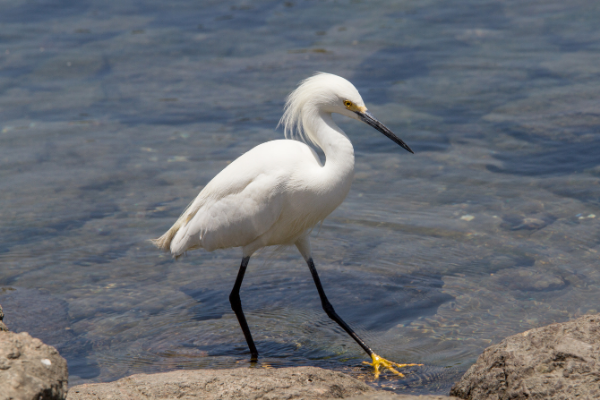Cheers to Biden for delaying MBTA rollbacks
Cheers to the Biden administration for delaying the implementation of a rollback of Migratory Bird Treaty Act protections finalized just weeks before the inauguration and for reopening the public comment period. The deadline for submitting comments is March 1, 2021.
The change by the Trump administration redefined the scope of the MBTA, centering on the enforcement of “incidental take.” It attempted to limit the MBTA’s protection only to activities that purposefully kill birds, exempting all industrial hazards from enforcement. Any “incidental” death—no matter how inevitable, avoidable or devastating to birds—became immune from enforcement under the law. Basically, it makes it a piece of cake for energy companies to get away with slaughtering birds.

Close Up IMage of a Snowy Egret on a Sunny Florida Day
“The proposed regulation will seriously endanger birds and leave a major gap in the regime which protects this vital international resource,” Friends of Animals stated in our comments. “U.S. Fish and Wildlife Service has long complied with judicial interpretations of the Act, which protect constitutional rights and mitigate the impacts of commercial activity through cooperation and education.”
If this change had been in place in 2010, BP would have faced no consequences under the MBTA for the more than one million birds killed in the Deepwater Horizon oil spill. And Exxon would have faced no consequences after the crash of the Exxon Valdez oil tanker in 1989. Both resulted in massive maritime spills that killed thousands of birds.
According to an analysis by the Audubon Society, oil companies were responsible for 90 percent of incidental takes prosecuted under the act, resulting in fines of $6,500 per violation.
“Delaying the implementation of the Trump administration’s illegal rollback of the Migratory Bird Treaty Act is the right thing to do,” Sarah Greenberger, interim chief conservation officer, National Audubon Society, said in a press release. “This delay will allow a full reassessment of the rule change and we are hopeful that these critical bird protections will be reinstated.”
The best known success story that has resulted from the MBTA is the snowy egret, which was hunted almost to extinction for its delicate feathers before early conservationists like the Audubon Society, along with the federal government, stepped in to stop the slaughter. The MBTA is credited with saving numerous other species from extinction, including the wood duck and sand hill crane.
You can read FoA’s comments here. You can submit your own comments two ways:
Electronically
Go to the Federal eRulemaking Portal: https://www.regulations.gov. In the Search box, enter FWS–HQ–MB–2018–0090, which is the docket number for the rule. Then, click on the Search button. You may submit a comment by clicking on “Comment Now”
By hard copy
Submit by U.S. mail to:
Public Comments Processing
Attn: FWS–HQ–MB–2018–0090
U.S. Fish and Wildlife Service
MS: JAO/3W
5275 Leesburg Pike
Falls Church, VA 22041‒3803

